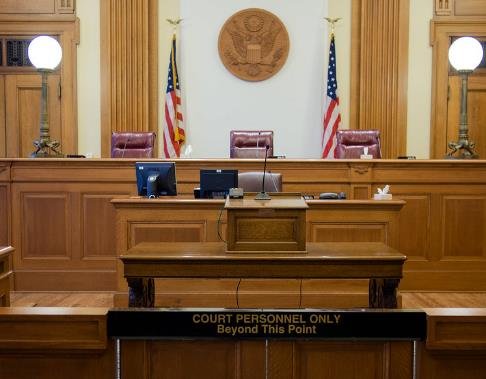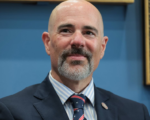A critical battle over cannabis rescheduling just took another turn, as three pro-reclassification participants have either withdrawn or had their status altered in the ongoing Drug Enforcement Administration (DEA) review. The shake-up further complicates an already contentious process, raising questions about fairness and transparency within the agency’s decision-making.
Two Participants Withdraw, One Left in Limbo
John J. Mulrooney, the DEA’s chief administrative law judge, granted withdrawal requests for two designated participants on Feb. 7—leaving the pro-rescheduling side weaker in the high-stakes debate over the Department of Justice’s (DOJ) proposal to move cannabis from Schedule I to Schedule III.
The withdrawals came from Erin Gorman Kirk, Connecticut’s Cannabis Ombudsman, and The Doc App (operating as My Florida Green), both of whom were represented by attorney Matthew Zorn. The departures follow an interlocutory appeal that has thrown the entire process into an indefinite stall.
Kirk cited competing priorities in her decision to exit, emphasizing the need to focus on Connecticut’s medical cannabis patients rather than a prolonged federal legal battle. In her view, legislative engagement at the state level was a more productive use of her time and resources.
In a previous statement to Marijuana Moment, Kirk expressed frustration over what she saw as behind-the-scenes maneuvering by the DEA, which she said undermined confidence in the process. She questioned why anyone would have faith in the agency’s ability to handle cannabis rescheduling fairly, referencing historical government hostility toward the plant.

Judge’s Order Adds Time for One Remaining Advocate
While two participants have now officially exited, the third—Ellen Brown, a Massachusetts Cannabis Advisory Board appointee—has been granted a temporary reprieve. In a Feb. 11 ruling, Judge Mulrooney gave Brown until March 14 to decide whether she wants to consolidate with another designated participant, amend her expert witness testimony, and update her exhibit list.
This extension comes in the wake of a dispute over legal representation. Mulrooney’s order acknowledged that Brown’s experience with her previous attorney was, in his words, “mutually suboptimal.” That wording suggests significant challenges in how the rescheduling advocates have been able to mount their case.
The reshuffling leaves Brown as one of the few remaining designated participants arguing in favor of cannabis reclassification.
A Legal System Tilted Against Reform?
The withdrawals and delays highlight deep concerns among advocates about the fairness of the DEA’s process. Kirk was particularly vocal, pointing out that the agency seemed to be working in coordination with anti-cannabis groups while limiting pro-rescheduling voices.
She noted that thousands had applied to be part of the proceedings, but only 25 were accepted—without clear reasoning behind the selections. That lack of transparency has fueled speculation that the DEA’s ultimate decision may already be predetermined.
For some, the rescheduling fight is primarily about tax benefits, particularly the elimination of IRS Section 280E, which prevents cannabis businesses from deducting standard expenses. But Kirk and others stress that this is also a patient rights issue, affecting veterans and medical cannabis users who have long struggled for recognition.
Legal Precedent and Zorn’s Track Record
Attorney Matthew Zorn, who was handling the rescheduling hearing pro bono for Connecticut’s Office of the Cannabis Ombudsman, has a history of taking on the DEA—and winning.
- In 2019, he successfully sued the agency on behalf of Dr. Sue Sisley and the Scottsdale Research Institute, securing the right to grow cannabis for research rather than relying on government-grown marijuana.
- More recently, Zorn represented a former DEA agent who had been fired for using CBD oil. The agent was reinstated with back pay.
Despite those past victories, Zorn confirmed that he is no longer involved in the cannabis rescheduling case. His exit, combined with the withdrawals of Kirk and The Doc App, leaves the pro-reclassification camp looking significantly weaker.
What Comes Next?
With an interlocutory appeal still pending, the timeline for rescheduling remains uncertain. The departures of key participants raise serious concerns about whether the process is truly equitable—or if the DEA is simply going through the motions.
Judge Mulrooney’s recent decisions have placed the next move squarely in the hands of the DEA. Whether the agency chooses to proceed with a hearing or not could provide an indication of how much weight it’s giving to the voices that remain.
For now, the battle continues, but with fewer advocates in the ring.
David Johnson is a respected writer known for his expertise in crafting compelling articles about cannabis. With a passion for exploring the intersection of cannabis, health, and wellness, he sheds light on the therapeutic properties and potential uses of this versatile plant. David’s in-depth analysis and thought-provoking commentary offer readers a deeper understanding of the evolving landscape of cannabis legislation, consumption methods, and industry trends.








